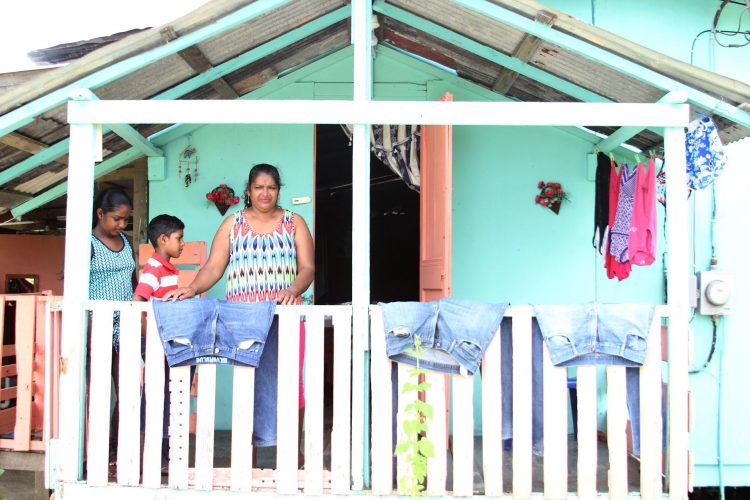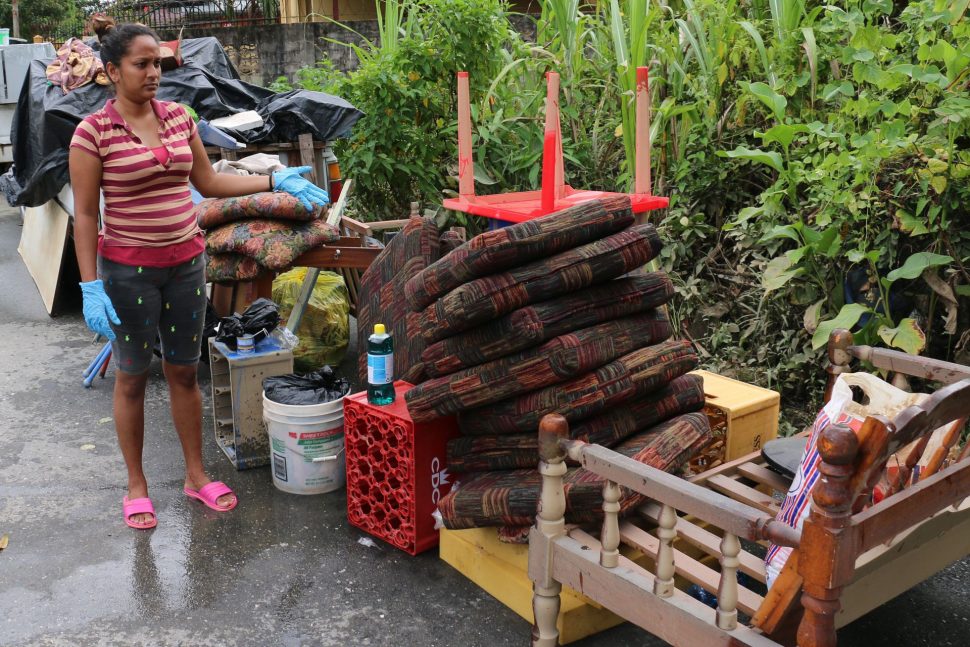(Trinidad Guardian) Diwali involves a host of customs, one of which is the extensive cleaning of homes and surroundings. But this year, with the ravages of recent floods, many Hindus are finding it difficult to clean.
Some of the people who lost all of their possessions have no money to celebrate Diwali and many say they have no choice but to scale down their festivities.
At Debe Trace, Gangadie Gangapersad said she usually lights 20 dozen deyas around her home but this year all she could afford was three dozen.
Her daughter Reshma Bachan said they also plan to light up their porch in the event of rain or floods. “We are also cooking our own roti this year because last year we had to wade through floods to get the roti we ordered,” Bachan added.
She said the October floods had left many areas in ruins and some felt Diwali 2018 was turning out to be one of the most depressing Diwalis in recent times.
Basso Singh, of North Oropouche, said Diwali was not shaping up to be a happy celebration for her family and many of her neighbours who experienced the floods of October 19-21.
“We have tried to clean up as best as we could. Flood water could have covered me below our house. We had to throw away our fridge, wardrobe, stove and couch,” Singh told Guardian Media.
“We pack up everything by the roadside and people came and took it. Maybe they have better use of it. We do not have enough money to buy the things we usually buy so I am just making little amounts of food for when my children come to visit.”
At Fishing Pond Village in Sangre Grande, Savitri Phillip said although she was not a Hindu, there could be no celebration at her home because of her losses.

At Harripaul Village, Picton, widow Deokie Mahabir and her children also predicted a dismal Diwali.
Mahabir said her home flooded several times this year because the rivers and drains surrounding her community were in need of cleaning.
“To make matters worse, someone broke into my house and stole my jewellery and even my gas tank. They took my food card and when I went back to the Ministry of Social Welfare they told me I have to wait until next year March to get assistance. I depend on the food card to buy groceries so we cannot really buy much for Diwali,” Mahabir said.
Her youngest children, aged nine and 12, are still attending school.
At Gopie Trace, Penal, residents said there will be no traditional street light up this year. Usually, lanterns are strung across both sides of the streets and parsad is distributed to motorists who visit to see the lights.
However, Shanta Sampath, of the Rahas Mandal Cultural Group, noted that their pundit, Ramlakhan Soorjan, died this year so they decided not to light the streets out of respect for him.
Toco/Sangre Grande Regional Corporation chairman Terry Rondon said in his area many Hindus were also finding it difficult to clean up in time for the Diwali festivities. He said the corporation was also not celebrating Diwali this year but instead using the money that would have been channeled to this activity to organise clean-up in all communities.
“In Sangre Grande we have a lot of Hindus and we support our Hindu brothers and sisters,” Rondon said.
“We are concentrating on clean-up and sanitizing. We have stopped giving food, water and clothing. We are working around the clock to clean up for Diwali. That is the level of respect we have for our Hindu family.”
He explained that the major areas in need of clean-up were North Oropouche, Vega De Oropouche, Coalmine, Lemond and South Sangre Grande.
On Saturday, Rondon said a mobile pharmacy headed by Dr Vijai Bhagaloo went throughout the area offering assistance to hundreds of people.
Meanwhile, Navin Kalpoo, from Ibis Tours, said he was disheartened by the amount of debris still stacked in many of the flood-stricken areas.
“The corporation has their hands full. I am hoping that contractors can come out and help with the clean-ups,” Kalpoo said.
“Many people have stacked their ruined appliances outside their homes. As a Hindu, I know the importance of cleanliness around Diwali so I am hoping that more people can help.”
He added that areas most in need of clean-up were Kelly Village, Sieunarine Trace, Laundry Road and Madras Road, St Helena.
Kalpoo also said his team planned to donate at least 30 hampers with Diwali groceries to flood-stricken families.
“When we assisted families we did not take information about their religion so we have to go back into the communities and see who is most deserving,” Kalpoo said.
He also said that it was sad that Diwali was only two days away and many residents were still in a dark hole.
The significance of cleanliness at Diwali
Hindus thoroughly clean their homes, spruce up the paint jobs and furniture and wear new clothes for Diwali.
It is a common belief that Goddess Lakshmi, the Goddess of wealth and fortune, visits clean homes during this festive period and bestows health, wealth and prosperity to the families. Diwali also marks the last day of the “King Vikram” calendar, so the day after Diwali is said to be the beginning of the new year for some Hindus, who traditionally mark the new year by getting rid of dirt and old junk.

